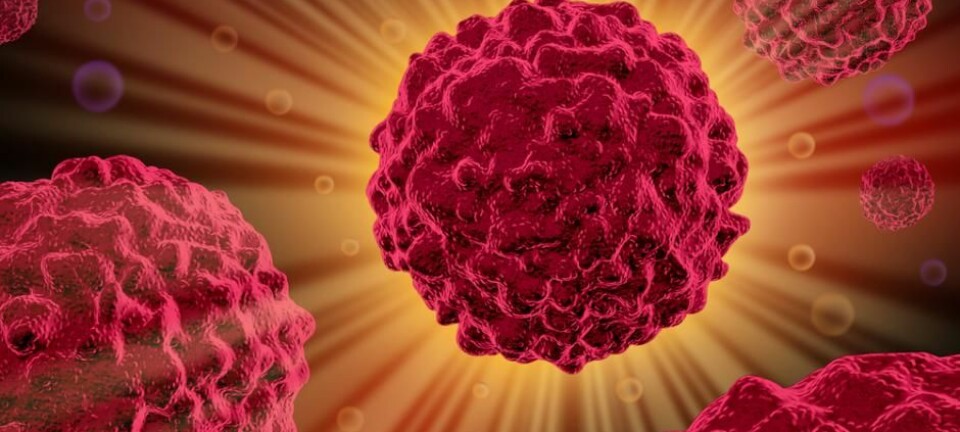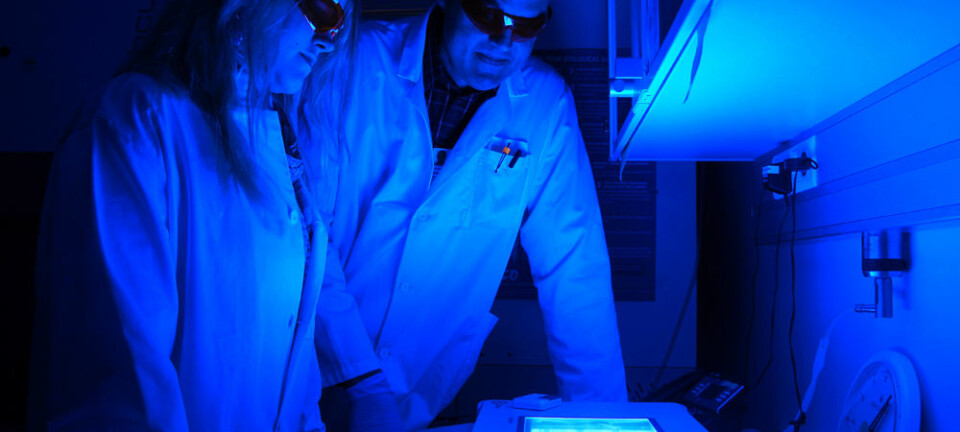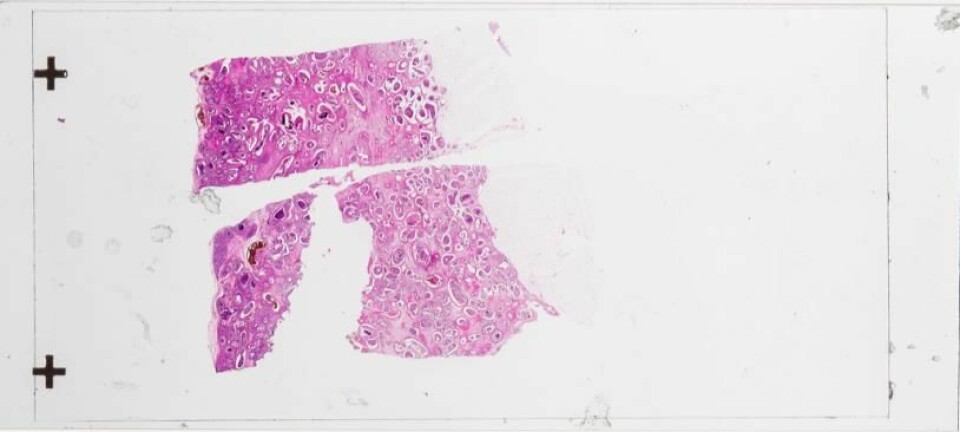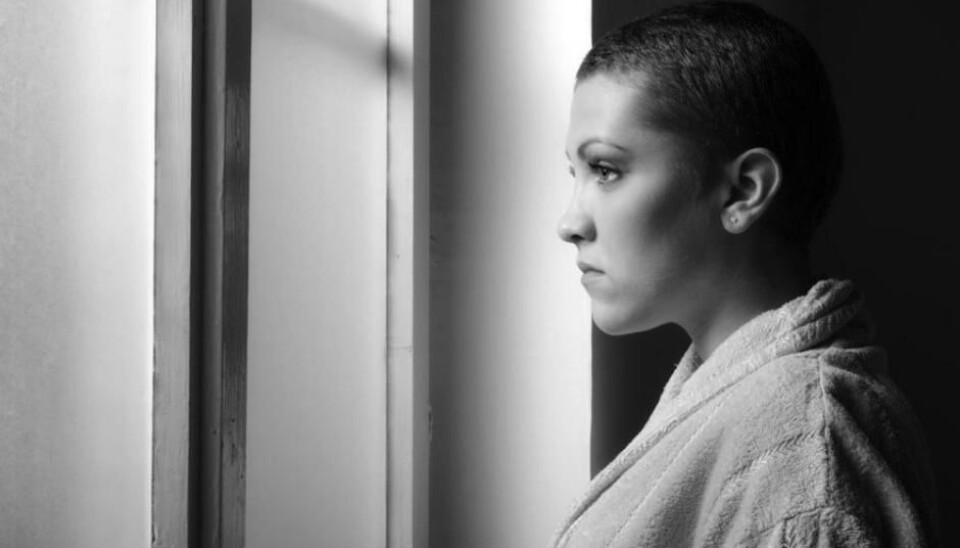
Scientists: we will never find a cure for cancer
Don’t count on a cure for cancer any time soon, say scientists. Instead we will find a way to live with it.
If all the positive cancer breakthrough headlines are to be believed, then the cure for cancer is right around the corner. But that is a far cry from reality, says Dr. Jørgen Olsen, head of research at The Danish Cancer Society.
“I think it’s an illusion to imagine that after millions of years of this disease we’ll suddenly find a solution. I don’t think that we’ll ever beat it, but I think that we’ll get it under control so that it becomes chronic but not deadly,” says Olsen.
Prominent cancer researcher, Mads Daugaard from the Molecular Pathology & Cell Imaging Laboratory at the University of British Colombia, Canada, agrees.
“We won’t find a cure, but we’ll probably reach a point where we have so many ways to attack cancer that people won’t die from it anymore,” says Daugaard.
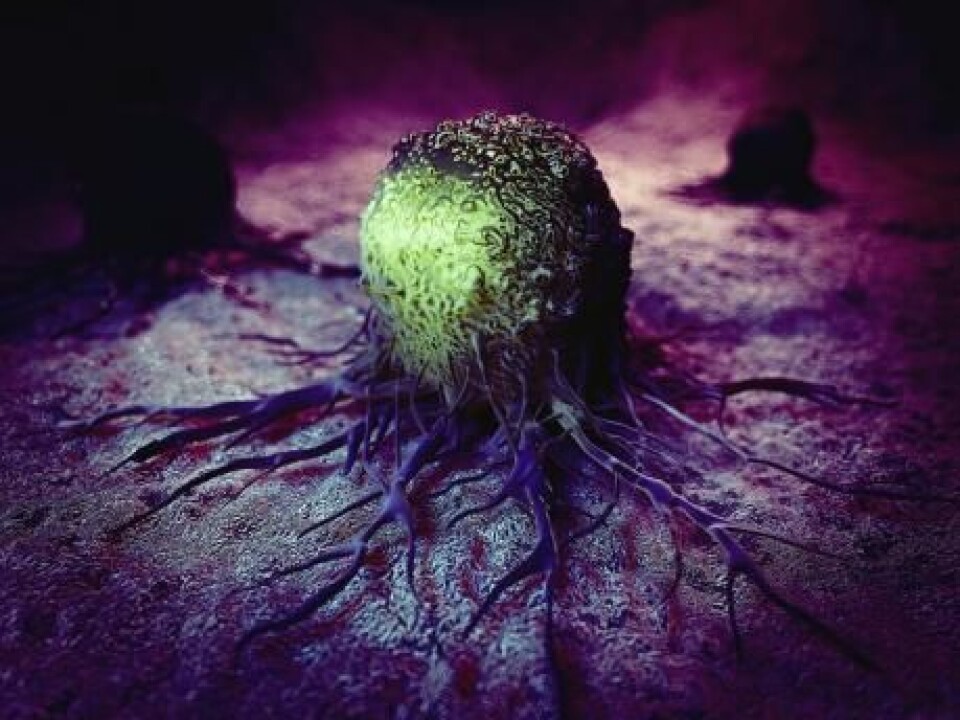
Read More: Is immunotherapy really a revolution?
Cancer patients are living longer already
Immunotherapy has become a hot topic in cancer treatment. It works by making the body’s own immune system attacks cancer cells and it is one of many alternatives to conventional chemotherapy or radiotherapy.
“With all the new technologies and discoveries that are occurring, the chance of making a decent leap forward is increasing. I’m more optimistic now that cancer will become a chronic disease than I’ve been previously,” says Olsen.
Forty years ago, he says, around 35 per cent of patients were still alive five years after their diagnosis. Today, that number is around 60 to 65 per cent.
“So it’s moving in the right direction and the improvements are happening faster and faster,” says Olsen.
But even this is still a long way off.
Olsen suggests that breast cancer could go from a deadly disease to a survivable one in around 10 to 14 years’ time. Other types of cancer, such as cervical cancer, bowel cancer, lung cancer, throat cancer, and ovarian cancer might take a bit longer.
Read More: New technology can improve immunotherapy
Why won’t we find a cure?
But why can’t we find the secret weapon to beat cancer once and for all?
One reason is that cancer is not just one disease--even individual tumours can vary substantially from one patient to the next and the same type of tumour in different parts of the body can respond differently to medication.
Just like any other organism, cancer cells are trying to survive, and they are very good at it. They quickly spread to multiple parts of the body, and they mutate constantly, rendering existing medicines ineffective.
“Cancer cells are very adaptive, especially when the cancer is at an advanced stage,” says Olsen.
Read More: Rare aggressive skin cancer on the rise
Evolution can explain cancer
There are some similarities between cancer and the principle of evolution, says Daugaard. Evolution is driven by natural selection, which means that organisms or cells that survive long-term are those that can adapt when their existence is challenged.
“We scientists have a tendency to judge the success of a treatment based on how many tumour cells we can kill. But unfortunately it often turns out that when we use, for example, chemotherapy, that we reverse “select” for the few cells that can resist treatment. The [surviving] cells will often restore the disease after treatment, in a more aggressive form that is now resistant to this form of treatment,” says Daugaard.
“Then you need a new treatment and the story repeats itself. Cancer therapy can thus be viewed as a race against cancer evolution, and this is why it’s so hard to beat,” he says.
Even the most promising and broad-spectrum treatments cannot stand alone in the fight against cancer, says Daugaard. “So the solution is to attack cancer from many different angles at the same time.”
Read More: How hereditary is prostate cancer?
Cancer cannot be defined by location in body
Another complication is that any one cancer tumour can be unique and require specialised treatment. For example, a lung cancer tumour in one patient may more closely resemble throat cancer in someone else, than another case of the same type of cancer.
This means that the oncologists cannot diagnose based on where the cancer is found in the body alone. Further, they cannot simply use the same medicine to treat the same type of tumour in two different patients.
“It’s not unreasonable to think that we’ll overhaul our cancer classification system within the next ten years. It looks like more and more like we should look at what changes in people’s genetic material are behind the disease,” says Olsen.
Another problem is that cancer appears to develop due to completely different reasons from one person to another. This is down to our individual DNA.
“If we study 10,000 people who’ve been exposed to some substances that we know are carcinogenic, then perhaps just ten, five, or one per cent of those will develop cancer. Why? I think it’s down to the interaction between you genetic composition and external influences,” says Olsen.
Read More: Scientists find new mechanism to explain development of cancer
Protect yourself from cancer
Part of the fight against cancer is to try to prevent it developing in the first place. Or at least to develop early detection techniques to spot cases in time to stop the disease before it mutates and spreads.
We already know how to do that for a couple of types of cancer.
In Denmark, for example, between 164,000 to 374,000 people develop cancer because of avoidable habits or lifestyle factors such as smoking, sunbathing without protection, unhealthy diet, exposure to HPV infections, or carcinogenic substances, and radioactivity.
Effective information and campaigns can help reduce cases of cancer, says Olsen.
“It’s important to remember that prevention and early diagnosis will be key players in the coming years when it comes to putting the brakes on cancer,” he says.
Read More: Genetic profiling of cancer tumours opens up new treatment options
-------------
Read the Danish version of this article on Videnskab.dk
Translated by: Catherine Jex

